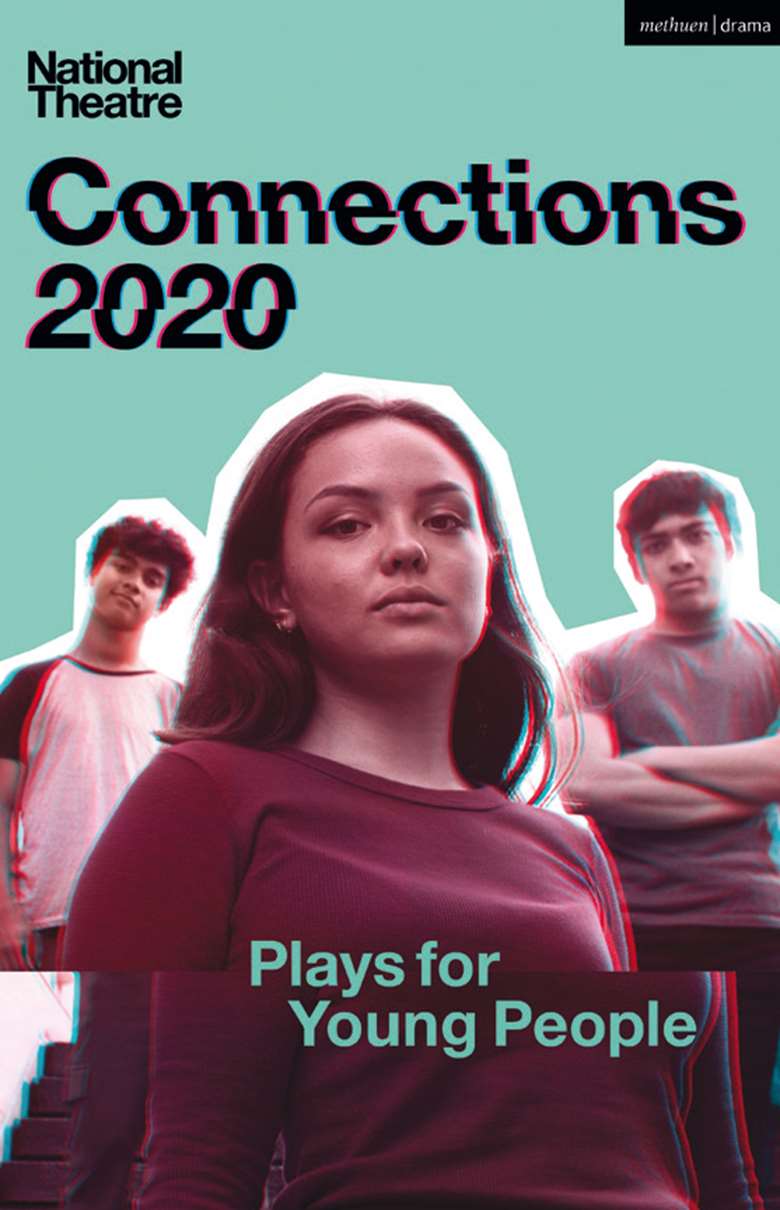National Theatre Connections 2020: Plays for Young People
Lucy Miller
Thursday, October 22, 2020
An eclectic anthology speaking directly to our age

By Mojisola Adebayo, Alison Carr, John Donnelly, Vivienne Franzmann, Hattie Naylor, Andrew Muir, Frances Poet, Silva Semerciyan and Chris Thompson
If you are familiar with the Connections series of play anthologies, then this latest 2020 offering is a worthy addition to an already large and useful collection. If you aren't, they are a Drama teacher's gift. In this volume you will find nine brand-new plays by an eclectic range of well-known playwrights, written to be performed by young people.
With large, flexible casts, the plays are easily adapted to different groups. They boldly address a range of pressing contemporary issues, from the Windrush scandal to LGBT+ rights; there's sure to be something here to grab the imagination of your group. Each play is accompanied by useful workshop notes, offering warm-up games, staging suggestions and further insight into the playwright's intentions, making the prospect of staging one feel less daunting.
As an experienced Drama teacher, I have found myself keenly jotting down some of these exercises to refresh my repertoire of warm-up games, icebreakers and approaches to text. It is always a joy to add something new to the toolbox, particularly at this current time when much of our usual craft has to be reimagined to adhere to social distancing guidelines. The plays are ideal hunting grounds for GCSE or A level exam pieces, house plays, year group plays or even whole school productions.
The first in the collection, Wind/Rush Generation(s) by Mojisola Adebayo is perhaps especially relevant in the wake of the recent resurgence of the Black Lives Matter movement. A group of first year undergraduates are haunted by a ghost from their British colonial past. The play is a fusion of styles, combining naturalistic scenes with more absurd elements. Suitable for pupils from any ethnic background, it provides a welcome invitation to explore issues of race and identity and a platform for further research.
When a tear opens up in the sky of the school playground, it brings two parallel worlds together and the characters are forced to confront some uncomfortable truths. Tuesday, by Alison Carr, is a text I would love to explore with a GCSE group, whom I envisage responding enthusiastically to the fast paced dialogue, physical, ensemble style, accessible characters and the relatable themes of family, loss, bullying, prejudice, and actions having consequences. While design-focused students could experiment with how to create the illusion of these two worlds colliding, it could just as readily be performed on a bare stage.
Possibly my personal favourite in this collection, A Series of Public Apologies, by John Donnelly, is satirical, politically astute and socially observant. After an incident in the school lavatories, the school is forced to publicly apologise, but words can easily be misinterpreted, sensitivities magnified and intentions distorted. What begins as a simple apology soon becomes a scandal fuelled by viral hashtags. Imaginative and playful, the play provides ample opportunity for a large ensemble to explore a heightened, physical approach.
The IT by Vivienne Franzmann, is a darker piece that would appeal to a GCSE group. Grace finds herself growing a creature in her belly, created out of bad news and anxiety. Against a backdrop of social media addiction, climate change and the refugee crisis, this text explores how easy it might be for a young person to reach breaking point. The use of a chorus and documentary-style moments give the play a sharp, contemporary feel.
Perhaps reflecting the sentiment of the Greta Thunberg movement, many of these texts see young characters creating positive change in a troubled world. In The Marxist in Heaven by Hattie Naylor, protagonist Valerie challenges its traditional hierarchy, while Andrew Muir's Look Up tells the story of ten teenagers who choose to step through a ‘Red Door’ to create their own society with its own rules. Similarly, in Crusaders, by Frances Poet, children across the world unite to join a pilgrimage to the Holy Land. I particularly enjoyed Witches Can't be Burned, by Silva Semerciyan, in which a group of students rewrite Arthur Miller's The Crucible to promote gender equality. Pupils may find it inspiring to view their AQA GCSE set text through this contemporary lens.
Finally, Dungeness by Chris Thompson, which has also been released as a single text with a percentage of its sales going to charity, takes place in an LGBT+ safe house. It offers young people the opportunity to confront issues affecting this community by tackling transgender or homosexual roles, which should spark some interesting debate.
I thoroughly recommend this anthology to teachers looking for some fresh inspiration. It is invigorating to read a collection of plays that speaks this powerfully to our age.

